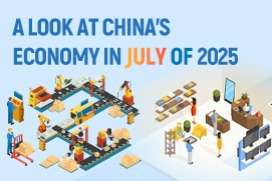Loans boost development in Global South
Chinese funds providing long-term benefits to developing economies

China has consistently provided much-needed loans to other nations across the Global South, based on their development priorities and repayment capacity, analysts said, citing recent research that counters claims portraying the country as a primary driver of so-called "debt traps" in lower-income countries.
Through concessional financing aimed at supporting infrastructure and industrialization, China has helped bridge investment gaps in developing economies, bringing tangible long-term benefits to local communities, they added.
A report released last week by the United Kingdom-based organization Debt Justice found that lower-income countries are spending three times more on debt repayments to private lenders than to Chinese institutions.
Using data from the World Bank and the International Monetary Fund, the report revealed that between 2020 and 2025, only 13 percent of external debt payments by lower-income countries will go to Chinese lenders — compared to 39 percent to commercial creditors, 34 percent to multilateral institutions and 14 percent to other governments.
"Commercial high-interest lenders are receiving the greatest debt payments by lower-income countries," said Tim Jones, policy director at Debt Justice.
"Where debt payments are too high, all external creditors need to cancel debt, in proportion to the interest rates they charged. Western governments need to ensure that private lenders take part in debt cancellation," he added.
Despite this, media narratives in some Western outlets continue to cast China as the dominant creditor in the developing world. However, experts argue these claims are misleading and reflect geopolitical biases rather than economic realities.
Hussein Askary, vice-chairman of the Belt and Road Institute in Sweden, said that it is true that many nations, especially developing countries, are in dire need of infrastructure to release their economic growth potential and sustain it.
"Nations are tired of aid programs that have continued for decades without any tangible results in their attempts to eliminate poverty and achieve prosperity," he said. "It's imperative to continue the Chinese method of low-interest and long-term loans no matter what the opponents say."
China's development financing continues to gain traction.
In July, China Development Bank issued the first tranche of a 180 million yuan ($25 million) loan to Kazakhstan's state-owned railway company to support the purchase of 200 locomotives from Chinese manufacturer CRRC Corporation Ltd.
According to the bank, the first batch of locomotives is already in operation, significantly enhancing Kazakhstan's rail capacity and supporting the construction of the Trans-Caspian International Transport Route, a major Eurasian logistics corridor.
Ye Hailin, dean of the China-Africa Institute at the Chinese Academy of Social Sciences, said Chinese financial institutions and companies fully respect the sovereignty and development goals of partner countries when engaging in investment and financing cooperation.
"Crucially, China has never attached any political conditions to its support," Ye said. "This has diminished the leverage previously held by Western-dominated creditors able to command high interest rates."
China has also taken steps to reduce debt burdens for the least developed nations. Last year, Beijing pledged to waive all interest-free government loans due by the end of 2024 for African countries with diplomatic ties to China.
"These baseless allegations are nothing more than a desperate attempt to undermine the trust and goodwill that China has built with other Global South nations over the years, and also expose the inability of certain Western powers to keep up with the evolving dynamics," Ye said.
wangkeju@chinadaily.com.cn




































